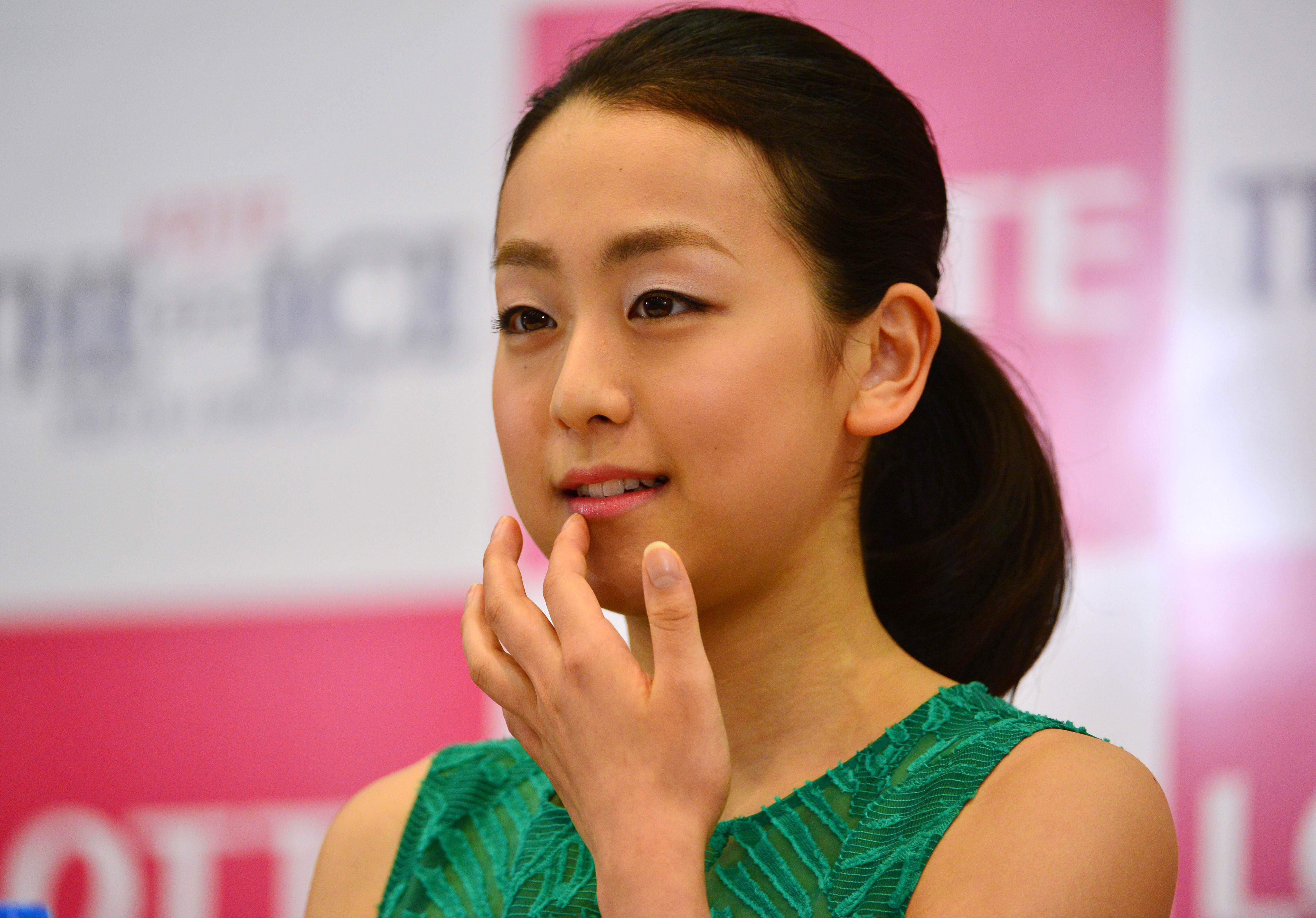"The feeling here is that she would be better served by taking a year off — like Vancouver Olympic champion Kim Yu Na did — to recharge her batteries before making such a huge choice. Perhaps some time away will let her gain some perspective."
That was my suggestion some 13 months ago after Mao Asada first mentioned that she was considering retirement after the 2013-14 season. I'm glad to see she has agreed with my viewpoint.
Mao has been skating nonstop since she was a youngster and no doubt needs some time away to ponder her next move. Here's hoping she will do what so many great athletes — like Michael Jordan and Mario Lemieux — have done over the years after stepping away — realize how much they love their sport and the special gifts they were given and continue on.
Mao is only 23 and, after seeing Italy's Carolina Kostner earn the bronze medal at the Sochi Olympics at 27 and Akiko Suzuki finish eighth at 28, will realize that she can easily carry on until the 2018 Pyeongchang Games.
All the skating fans out there should cross their fingers and hope Mao decides to return to competitive skating. As Jordan and Lemieux will attest, there is nothing like being in the heat of the battle.
Mao also knows deep down that there are an incredible number of people in this country who admire her. She is an angelic figure to many and symbolizes the very best Japan has to offer.
If she does come back, it will be interesting to see if she changes her training philosophy.
Will she return to Nobuo Sato and train in Japan?
Or go abroad and work with a foreign coach?
* * *
So Tokyo's National Stadium is finally closed.
The site of the 1964 Tokyo Olympics has been shuttered to make way for the new venue for the 2020 Summer Games.
There were some incredible performances on the track there 50 years ago.
American "Bullet" Bob Hayes won two gold medals. After blazing to victory in the 100 meters, Hayes anchored the U.S. in the 4x100-meter relay. Taking the baton with the U.S. well behind, Hayes blasted down the stretch to cross the line first.
That was the last race Hayes ever ran. He retired from athletics and went on to an outstanding career in the NFL, where he caught 71 touchdown passes for the Dallas Cowboys.
Hayes was posthumously elected to the Pro Football Hall of Fame in 2009.
The marathon saw Ethiopia's Abebe Bikila win his second straight gold in the event. After famously running through the streets of Rome barefoot in 1960, Bikila donned shoes for his triumph in Tokyo.
The tragic subplot to the marathon happened when Japan's Kokichi Tsuburaya, who hailed from Fukushima, entered National Stadium second behind Bikila, but was overtaken by Britain's Basil Heatley and had to settle for the bronze.
Tsuburaya was obviously crushed by having this happen at home with so many of his countrymen in attendance. Some accounts have said that Tsuburaya never got over this incident. He tragically committed suicide in 1968 at the age of 27.
Perhaps the greatest race ever run on the National Stadium track came in the Olympic 10,000 meters, when American Billy Mills grabbed the gold with an epic burst down the stretch.
The American Indian swung wide on the final turn to separate himself from the pack and outsprinted Tunisia's Mohammed Gammoudi and New Zealand's Ron Clarke. When Mills hit the finish line he was in the fourth lane.
Absolutely incredible.
Sports writers have been known to exaggerate at times, but take a look at this on YouTube sometime and you can see how it speaks for itself as what could be one of the great finishes in any Olympics.
As Mills overtook Gammoudi and Clarke one of the announcers shouts "Look at Mills! Look at Mills!"
Fifty years later, Mills remains the only American ever to win the Olympic 10,000.
* * *
This nonsense with the Japan Basketball Association has to end.
With FIBA threatening to ban the JBA over its inability to resolve the issues with the NBL and the bj-league, the world governing body for basketball is threatening to suspend the JBA from competition.
The stubbornness has gone too far and now threatens to imperil the future of the sport in the country and Japan's automatic bids for the 2020 Games.
It's ridiculous.
Though this is an internal battle in Japan, the reality is that it is making the country look bad to the rest of the hoop world. There are many who no doubt wonder why the JBA can't get its act together.
My suggestion: FIBA should force the JBA to hire former NBA commissioner David Stern as an independent arbiter to resolve the ongoing disputes between the two leagues and force a merger.
It is pretty obvious that absent an outside force with gravitas the posturing and lip service will continue indefinitely.
* * *
It's good to see Daisuke Matsuzaka enjoying some success in his stint with the New York Mets. The former sensation is now primarily a reliever, but is doing a respectable job.
One thing I don't understand, however, is how Matsuzaka is wearing No. 16 for the Mets. I did a double take the first time I saw it.
Why?
Because that was the number that Dwight Gooden wore for 11 seasons with the Mets. Gooden was a bona fide superstar in his day who was Rookie of the Year and also won the Cy Young Award.
It seems sacrilege for anybody to be wearing his number. His record with the Mets: 157-85, with an ERA of 3.10. He was an All-Star for them four times.
Gooden is second behind Tom Seaver (198) on the team's all-time wins list. Gooden's 24 wins in 1985 are second only to Seaver's 25 (in 1969) on the single-season wins list.
I'm not sure what gives here. It could be that Gooden's problems with substance abuse and/or the fact he went on to pitch for the Yankees and several other teams, is working against him.
Whatever the reason, it's a bogus one. Anybody who saw Gooden in his prime can tell you how special he was — a veritable force of nature.
Nobody should ever wear No. 16 for the Mets again.




